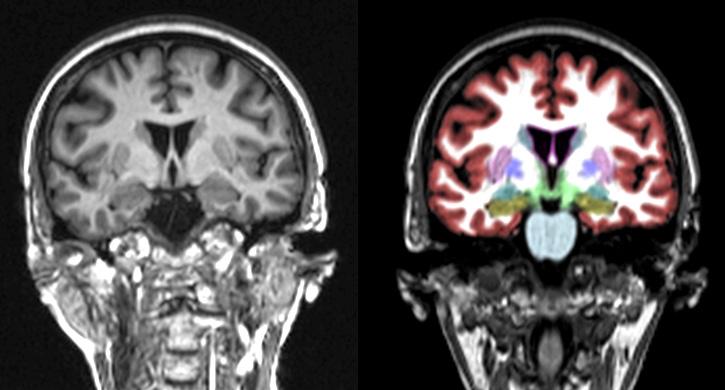Decoding Dementia
Kat
Toups, MD, DFAPA


Kat

Place a check mark on any questions where the answer is YES
Do you have more trouble remembering things that happened recently than you used to?
Do you have any trouble recalling conversation details a few days later?
When you’re speaking, do you have any difficulty finding the right word, or a tendency to use the wrong words?
Do you have more difficulty managing your money and financial affairs, like paying bills, taxes, or budgeting, than in the past?
Do you find any increased difficulty doing simple math in your head, like calculating tips, than when you were younger?
Has your handwriting deteriorated? (Not was it always bad, but has it gotten worse!)
Have you noticed any organizational problems with tasks that have lots of steps, like cooking or following recipes?
Do you have any trouble learning how to use new tools or appliances or gadgets?
Have you experienced any loss of interest in hobbies or activities that you formally enjoyed?
How many YES answers did you have?
•If 1 of these questions is a YES, you may have a problem with your memory/brain.
•If 2 or more of these questions are answered YES, it is time to get your brain health checked.
•If 3 or more of these questions are answered YES, you may be experiencing Subjective Cognitive Impairment (SCI), which is when you think you are having trouble with your memory, even though your physician says everything is ok, and that memory troubles are part of “normal aging”.
NOTE: Memory problems are NOT an inevitable part of aging. I will give you more info and tips about how to get started to help your brain health on the upcoming pages.

§ Dementia is Not a Death Sentence.
§ Dementia is not a mysterious disease that just happens – it happens for reasons!
§ When we find all of the contributory causes, we can help dementia.
§ We can then use Neuroplasticity: Exercise, Mindfulness, and Brain Training to reboot our brains and make new neuronal connections (synapses).
These are in no particular order. They all contribute, and each one is important to discover and treat.
§ Inflammatory Diet
§ Lack of Exercise
§ Poor Sleep
§ Sleep Apnea
§ High Stress
§ Being Overweight = Inflammation
§ Lack of Proper Vitamins and Nutrients
§ Cardiovascular (unhealthy lipid levels)
§ High Blood Sugar
§ Lack of Hormones
§ Infections, including dental infections
§ Mold/Mycotoxins
§ Toxic Chemical Exposure
§ Air Pollution
§ Head Trauma/Brain Injury
§ Impaired Hearing
§ Uncorrected Vision
• Anticholinergic Medications – older allergy drugs like Benadryl, older antidepressants like Amitriptyline/Elavil and Nortriptyline/ Pamelor, bladder medications, some asthma medications
• Tran quilizers
– Valium, Ativan, Xanax, Klonopin
• Hormone Blocking Drugs
-Propecia (Finasteride), Tamoxifen
• Statins – can lower cholesterol too much. The brain needs cholesterol to make the spongy brain matter, as well as the myelin sheaths around the nerves. The brain will degenerate if the cholesterol gets too low. Cholesterol is also the precursor of all the sex hormones, as well as the thyroid hormones and stress hormones.




1] I-Cubed: Inflammation, Infection, Immune
Find and correct/remove/rebalance any underlying causes that are contributing to the cognitive decline/dementia (Infections, Toxins, and other triggers for the immune system).
2] Diet
Paleo/Mediterranean Ketogenic Diet with time restricted eating (limit calories to 8 – 12 hours of the day; avoid food for 2 hours before bed).
3] Exercise
40 - 60 minutes a day – combination of daily strength training, aerobic training, and balance training + HIIT (High-Intensity Interval Training) a few times a week.
4] Mindfulness
Practice meditation, Tai Chi, Qigong, guided meditation, gratitude walks, or Heartmath® 12-15 minutes a day.
5] Brain Training/Neuroplasticity
Mentally stimulating activities like Brain HQ Brain Training - 15 minutes a day.
6] Sleep
Aim for 8 hours a night, before midnight; Screen for and treat Sleep Apnea if present.
7] Supplements
Add supplements as indicated by symptoms and testing to support the processes affecting the brain and cognition.
8] Restore Hormones and Vital Nutrients
9] Correct Hearing and Vision
1] Grain Free, Dairy Free, Whole Foods Organic Paleo-type Diet (lots of vegetables, healthy fats, and a little free-range meat/chicken/fish)
• Grains, especially gluten grains, can have a higher glycemic index than table sugar! We know that sugar is destructive to our neurons, and the gluten grains destroy the lining of our gut, causing Leaky Gut.
• If the lining of the gut is leaky, it will allow both the food and bacteria, viruses, and parasites in our gut to get absorbed into the bloodstream, where they can activate our inflammatory immune system.
• The elevated blood sugar from gluten/grains is destructive to blood vessels and can lead to vascular causes of dementia from restricted blood flow.
2] Time-Restricted Eating/Intermittent Fasting for Ketogenic Diet
• Even if you are not doing a Ketogenic Diet, you can reap some of the benefits by engaging in Time-Restricted Eating, as well as Intermittent Fasting. These can also be combined with a Ketogenic Diet.
• Try to limit all of your calorie consumption to 8-10 hours a day. This will shift your body from burning carbs/sugar as fuel to burning fat as fuel.
• This enables the liver to start generating ketone bodies, which are good fuel for the brain, and can enhance brain clarity as well as energy.
3] Avoid eating 2 - 3 hours before bedtime.
• Eating shortly before bed revs up your digestion resources and can negatively impact sleep.
• Eating before bed can increase your risk of indigestion, and even your risk of stroke.
• It can increase nightmares and result in non-restorative sleep.

• It also means you are more likely to store your calories as fat.
•For Ketosis, limit carbs to less than 50 grams a day (or < 30 grams a day if your blood sugar/HbA1c is elevated).

•Limit your calorie consumption whenever possible to 8 - 10 hours a day. (Time Restricted Eating).

Coconut Oil • MCT Oil (another way to achieve ketosis)
§ 2 tablespoons of coconut oil or MCT oil or extra-virgin cold-pressed olive oil can produce enough ketones to have a significant effect on brain function.
§ For treatment purposes, a total of up to 5 tablespoons (74 ml) a day taken with meals is sometimes recommended when people do not have problems with elevated lipids. Add a portion of the MCT oil or coconut oil to to each of the three meals consumed during the day.
§ For prevention, take 2-3 tablespoons (30-44 ml) daily.
§ NOTE: Add in Coconut or MCT Oil gradually, after meals, to avoid loose stools or diarrhea. It can have a laxative effect. Can also cause abdominal cramping if taken on an empty stomach and you are not adjusted to digesting this high level of fat.
§ Start with 1 teaspoon after a meal, and gradually work up to at least 2–3 tablespoons a day. Some people with Alzheimer's use 5 tablespoons a day.
§ Olive Oil (instead of coconut oil/MCT) can be beneficial for people with elevated lipids that need to reduce saturated fats. It’s even better if you consume a high polyphenol olive oil (polyphenol levels > 300).
•These are inexpensive, but they are unreliable and do not work well.
•Blood monitoring of ketones is generally considered the most reliable way to measure for ketosis.
•These meters directly measure the primary ketone: Beta-hydoxybutyrate (BHB).
•Studies have shown the optimal ranges of BHB levels are between 1.5-3.0 mmol.
•The testing units are inexpensive, but the test strips are not! They are least expensive with Keto-Mojo, but may still cost $1/strip!
•You will probably need to test your blood first thing every morning for about two weeks to learn how to get into ketosis. You should also test after consuming certain foods to learn what might kick you out of ketosis.
•Thereafter, you should probably test weekly.
• https://keto-mojo.com Click the SHOP button at the top to order a ketone meter kit. These ketone meters will also measure blood sugar.
• The Breath Meter is pricier to purchase, but you can test as much as you desire without the cost of the ketone meter test strips or the finger-sticks.
•The Blood Meter is considered slightly more precise as it measures BHB directly, while the Breath Meters measure Acetone - the ketone body that is produced from the metabolism of beta-hydroxybutyrate (BHB) to acetoacetate, and then into acetate/acetone.
•While it is an indirect measure, acetate has been found in recent research to correlate very closely to levels of BHB in the blood.
https://MyBiosense.com/
•$300 (try using the discount code ADAPT for $30 off)


•Healthy fats help you to feel full and happy.
•Healthy fats will not make you fat.
•Healthy fats are able to be burned by the body as fuel very efficiently, so they are not stored as fat
•Avoid foods containing unhealthy (bad) fats, like anything that says, “partially hydrogenated”. This is a code-word for trans fats that can lead to heart disease.
•Unhealthy fat is also found in feed-lot beef (not free-range beef), which highly inflamed. Feed-lot beef is low in heart and brain healthy Omega 3 fatty acids, but high in the pro-inflammatory Omega-6 fatty acids.
•Unhealthy fats are stored as excess fat in the body, because they cannot be broken down for fuel as readily as clean fats.

To support the brain, increase healthy fats at every meal.

• Exercise is one of the best validated ways we have to increase production of new neurons in our brain, and to help prevent dementia. There is a clear signal in research studies showing that we can reduce the risk of Alzheimer’s up to a 45% with exercise!!
• Strive for daily exercise.
• Optimal is 40 minutes of strength training, followed by 20 minutes of aerobics.
• Don’t forget the balance and core strength training to prevent falls!
• High Intensity Interval Training (HIIT) is especially helpful, and recommended 2-3 times a week.
• Work by scientists shows that even a few minutes of training at an intensity approaching your maximum capacity produces molecular changes within the muscles comparable to those from several hours of running or bike riding.
• If your physical conditioning allows, do any aerobic activity at near-maximum intensity for 4 minutes a day. Can be jumping jacks, running in place, etc. Can split the HIIT into a few 1-minute intervals. Be sure to spend a few minutes warming up before the HIIT, and a few minutes cooling down afterwards.
40-60

You only need 4 minutes of intense exercise to cause a surge in your BDNF (Brain Derived Neurotrophic Factor) that will help your brain to make new synaptic connections in the neurons.
• Mind-Body practices are also an integral part of Brain Healing.
• Cognitive Neuroscience has demonstrated that even 12 minutes a day of meditation can produce measurable changes in the brain.
• Any type of Mindfulness practice will be beneficial when done on a daily basis - choose whichever suits you best.
• Meditation, Tai Chi, Qigong, Guided Meditation, and Heartmath® (see info below) are possible options.
• Gratitude Journaling or Gratitude Walks, as well as, prayer and mindful walks in nature can also be meditative.
• Try to listen to these every day to start re-wiring your brain.
• A placebo-controlled study showed that 28 minutes a day of listening to guided meditation changed the brain in only 8 weeks - visible on MRI scan!
• The Amygdala (center for rage, anger, negative emotions) shrunk, and the Hippocampus (center for memory and pleasurable emotions) enlarged.
• Cell Phone Meditation Apps: HeadSpace, Insight Timer, and many more.
Mindfulness/Meditation Stress Reduction Training
• www.store.HeartMath.com
• Inner Balance system (bluetooth or wired for smart phones) (for smart phone) or emWave (handheld).
• Try to do this for 12 - 20 minutes a day - can be divided into several times a day.
• Can be useful first thing in the AM for a few minutes, as well as at bedtime.
• Also useful anytime you are feeling increased anxiety or stress.
• We know that stress is a risk factor for dementia, and meditative, mindfulness, and breathing practices are effective at reducing stress.
• I call this "Meditation for Non-Meditators". It’s is simple to do (even young children can do it), and they have excellent outcome research data.
• www.BrainHQ.com
• BrainHQ® can be done on your computer, I-Pad, or cell phone. (Download the paid app on your cell phone.)
• The games get harder as you do better, so they remain challenging.
• Plan to do the Brain Training for 15 minutes minimum each day. (Playing longer will bring even more benefits.)
• Games to Play:
- Double Decision and Hawkeye are two good games validated to prevent dementia (50% reduction in 10-year risk with Double Decision).
- Processing Speed and Memory exercises on BrainHQ can also be very helpful.
- Can set the program to “Focus on Visual Processing” for cognition/ memory focused training.
• This allows your body to heal, and your brain to detoxify and rebound from the day.
• It improves immune function, blood sugar regulation, and many other aspects of health.
• Improve your sleep hygiene by getting exposure to sunlight in the morning, and focus on creating a completely dark environment in your bedroom at night.
• Refrain from going on your phone or watching shows or movies for at least an hour before bedtime. If you absolutely need to do this, be sure to wear Blue Light Blocking glasses.
• When sleeping, turn your cell phone off, or go to Settings and put it into Airplane Mode if you need to have it on for alarms or sleep tracking. Best to avoid the Wi-Fi exposure.
• Install f.lux on your computer so that the blue lights will dim as the sun goes down. https://justgetflux.com/
• Check your cell phone settings: Select “Display and Brightness” setting on an iPhone. Set the Night Shift tab to lower the light 1-2 hours before your usual bedtime.
• The bright light at night will suppress the natural Melatonin surge that you need for good sleep.

• Sleep Apnea can occur even in people who are thin and not overweight.
• It can occur in people who are not aware of any snoring.
• It’s essential to be tested for sleep apnea, as this causes decreased oxygen to the brain (and heart) all night long. The brain and heart will both suffer!
• Untreated Sleep Apnea can lead to both Dementia and Congestive Heart Failure.
• Ask for a home sleep study, and if possible test for 3 nights. Sometimes 1 or 2 nights look fine, and then we see sleep apnea on the third night.
Take special care of your oral hygeine

• The microbiome in the mouth is connected to the microbiome in the gut and the brain, and it’s now clear that gum disease leads to heart disease and dementia.
• At least 3 of the pathogens that occur in the mouth can also be expressed in the brain, triggering an amyloid response that can lead to dementia.
• In addition to brushing, it’s important to floss the teeth or use dental pics or water pics before bed. Consider also using dental picks after meals during the day to combat Periodontal Disease.
• There are also some companies now making chewable probiotics for the mouth that might be helpful with chronic infections.
• My patients using Biocidin® Toothpaste and Biocidin® Dental Rinse have excellent dental check-ups. These are anti-microbial products that can be ordered on Fullscript™
• To order professional grade supplements on Fullscript with a 10% discount, please see the links on Page 20.
• Not the first order of business, but at some point, if you have them, mercury amalgams should be removed
• Despite what some dentists say, these fillings break down with age, and can leach mercury into your system. They can also give off fumes with hot liquids or dental cleanings, and those fumes can travel up into the brain where mercury can accumulate and trigger an immune response.
• We find higher mercury levels in people with amalgam fillings. And we are finding that patients with cognitive decline tend to have levels of mercury that are twice as high as age-matched controls.
• Please be sure to see a Biologic Dentist trained in safely removing the mercury so you do not get sick from the fumes.
• Best to wait until you resolve your basic health and nutrient issues, and make sure your detox systems working effectively (no constipation, sweating well, and taking detox support).
• International Academy of Oral Medicine and Toxicology www.iaomt.org
• International Academy of Biological Dentistry and Medicine www.iabdm.org
• I am now recommending that all of my patients with cognitive problems or neurodegenerative disorders have a Cone Beam Cat Scan (CBCT) x-ray study of their mouth and jaw, read by a dental radiologist.. We are turning up hidden infections, as well as problems in root canals that can trigger the immune system and travel right into the brain.
• The Cone Beam study can evaluate the integrity of the root canals to make sure they are not degenerating due to underlying subclinical infection.
• Infection in the mouth is easily transported into the brain through the cribriform plate, and infections in the brain trigger amyloid secretion that can worsen Alzheimer's.
• CBCT can also pick up hidden cavities, cavitations, and other types of problems in the mouth that can be triggering inflammation.
• For these reasons, lately I have started recommending CBCT scans for all patients with cognitive decline or prevention.
• Be sure to keep up with testing your hearing and vision as you age.
• The most modifiable risk factor for dementia is midlife hearing loss. It confers more risk than smoking, high blood pressure, lack of exercise and social isolation according to an international analysis published in The Lancet in 2017.
• Preventing or treating midlife hearing loss has the potential to decrease the incidence of dementia by 9%.
• Another study showed that wearing a hearing aid may delay the onset of dementia for 8 years by slowing brain ageing.
• By checking your hearing regularly, and using hearing aids as soon as they are indicated, you can help to prevent this deterioration.
• Same thing with keeping your glasses prescriptions up to date! When we can’t see well or hear well, those neuronal pathways are not firing, and then they will degenerate over time.
A new study shows that midlife hearing impairment results in atrophy of your temporal lobes, and ultimately this means a greater risk for Alzheimer’s.
www.Mycometrics.com
• Mycotoxins from certain species of toxic molds can travel through the nose and into the brain, where they trigger the brain immune system. This results in inflammation and destruction of the neurons over time.
• To test the Mycotoxin levels in your home, you can order the same test used by Mold Inspectors. Mycometrics ERMI - order the dust cloth version for $300. (They charge $50 to send the kit, and another $250 to run the test when they receive it.)
• Fold the swiffer cloth they send into quarters, and only use one quarter of the cloth on one side to concentrate the dust in this section.
• Collect as much dust as possible in your home on the cloth.
• If there is visible mold in your house, DO NOT collect from this spot as it will overgrow all of the other molds on the cloth. But do collect dust in rooms with mold.
• Best to test in places where things are not dusted frequently, like walls (wipe the wall between 3 and 6 feet from the ground), books, etc., but avoid testing “ancient dust” like on the top of your refrigerator. This might over-represent the levels of mycotoxins.
• Avoid testing near doorways or near the ground, as outdoor molds can be tracked into these areas.
• A good time to test is after a vacation when the house has been closed up to avoid contamination from the outdoors.
• For scoring your results, go to www.MyHouseMakesMeSick.com and enter the values into the HERTSMI Calculator. This will tell you whether the level is suspicious or downright unhealthy and needs further evaluation by an Environmental Health inspector.
• It is imperative to have your home inspected by an experienced IEP (Indoor Environmental Professional) if the HERTSMI scores are borderline or elevated and you or others in your home are suffering from cognitive problems or unexplained medical problems.

• Mycotoxins from mold can affect the retinas in the eyes, and cause changes in the ability to discriminate contrast.
• Many times, people are not aware of changes in their vision until it is tested.
• There is a free online Vision Test to screen for these mold effects on the retina.
• www.vcstest.com
• The VCS Test can be followed over time when the home has been remediated for mold and people are being treated with binders for Mycotoxins. We can see gradual improvement in these situations.
• There is a lot of testing that needs to be done by a Physician experienced in working with reversing cognitive decline.
• We test for metabolic factors (like lipids and blood sugar control), inflammation markers (body and brain), vitamin and mineral levels, hormones, immune markers, heavy metals, other environmental toxins, mycotoxin levels, and lots of infections known to affect the brain, including viruses, Lyme Disease and other co-infections.
• These findings give us treatment targets to help reverse potential drivers of the cognitive decline.
• MRI scans of the brain can be combined with a program called NeuroQuant® that will give a volumetric measurement of all the brain structures.
• NeuroQuant® allows a comparison of the size of each brain structure to those of age-matched controls. This lets us see if the brain structures are atrophied (neurodegeneration) or enlarged (from inflammation).


Supplements for basic support, as well as to replete what is found to be missing or support detoxification are especially important in this protocol.
I generally use the Basic Nutrients and the Mitochondrial Nutrients to start. Then, based on the results I get back from testing, as well as other clinical symptoms someone might have, I will craft a customized supplement plan.
I select supplements that will do double-duty or triple-duty for multiple conditions in order to minimize the number of supplements needed.
(If you are interested in ordering professional grade supplements on Fullscript with a 10% discount, see the links on Page 20.)
1] Fish Oil – minimum 3 grams a day (more if hyperlipidemia or high inflammation)
2] B-Complex or Multivitamin
3] Vitamin D with Vitamin K2-MK7 – correlate with lab levels to achieve a blood level of 50-80
Support for Energy, Chronic Fatigue, and Cognition
• Mitochondria generate our cellular energy that drives all our cells (except red blood cells).
• Mitochondria decline with aging.
• They also decline more rapidly with any neurodegenerative or inflammatory disorder.
• The brain and heart are the biggest consumers of energy in our bodies, so they suffer first when the mitochondrial levels are low, or the mitochondria are under siege.
• This makes the mitochondrial nutrients especially important for support of the brain (and heart).
• CoQ10, Acetyl L-Carnitine, and R-Lipoic Acid are important mitochondrial nutrients that support different pathways in the Electron Transport Chain. CoQ10, Acetyl L-Carnitine, and R-Lipoic Acid are important mitochondrial nutrients that support different pathways in the Electron Transport Chain. This pathway produces ATP (cellular energy) within the mitochondria.
• NAC is a powerful antioxidant that protects mitochondria and neurons from damage.
• Co-Enzyme Q10 is an important rate-limiting cofactor in the mitochondrial electron transport chain which makes ATP for energy in every cell of the body.
• CoQ10 occurs in all cellular membranes, as well as in plasma attached to lipoproteins like low-density lipoproteins (LDL).
• CoQ10 protects the membrane phospholipids and serum LDL from lipid peroxidation.
• It also protects mitochondrial membrane proteins and DNA from free radical induced oxidative damage.
• Related to its antioxidant properties, co-enzyme Q10 is also important for normal immune function.
• ALCAR is an antioxidant found in the brain and peripheral nervous system.
• ALCAR supports brain function/memory by enhancing production of the neurotransmitter acetylcholine, which is critical for memory, learning, and attention.
• It also supports fat metabolism and energy production within the mitochondria
• This is an essential cofactor for many enzymes involved in energy production.
• It has significant antioxidant effects, and especially helps to moderate oxidative stress in neurons, in the liver, and the eyes.
• It also reduces inflammatory cytokines, as well as blood sugar levels.
• NAC is a powerful antioxidant that is the precursor to Glutathione, the most important antioxidant in our bodies, which protects cells from oxidative stress and damage.
• NAC supports immune function, as well as protects the glial cells of the brain, the lungs, and the liver.
• NAC can lower glutamate levels, which are excitatory and can be destructive in the brain.
• NAC helped to prolong survival and protect against brain damage in models of mitochondrial disease.
• There are many things that turn out to be drivers of neurodegeneration that lead to cognitive decline and dementia.
• When we discover these drivers, it gives us treatment targets to halt the degenerative processes affecting the brain.
• And, we have ways to enhance neuroplasticity to rejuvenate and regenerate connections in the brain, like exercise, meditation, and brain training.
• The most important take-away is that Dementia is Not a Death Sentence! There is so much we can do to halt and even reverse it if we can work with people early enough.
Precision Medicine Approach to Alzheimer’s Disease: Successful Pilot Project

• Research study applying a Precision Medicine/Functional Medicine approach for the treatment of mild cognitive impairment and early dementia.
• Researchers: Drs. Kat Toups, Ann Hathaway, Deborah Gordon, and Dale Bredesen
• 84% of 25 patients with MCI and early dementia had improvement. Many of the patients were testing completely normal by the end of the study.
• We had a completely unexpected and unprecedented finding: Even the MRI head scans showed statistically significant improvements!
• https://content.iospress.com/articles/journal-of-alzheimers-disease/jad215707
• We have an upcoming larger randomized clinical trial scheduled to begin early in 2023. Stay tuned!
Please see the links on the following page to learn more about Dementia and keep in touch.
Stay tuned for my upcoming book, Dementia Demystified, which will have lots more information on this topic.
www.DementiaDemystified.com

YouTube youtube.com/KatToupsMD
•For lectures and podcasts and more content on Dementia and Functional Psychiatry, you can subscribe to Dr. Toups’s YouTube channel.
m.facebook.com/BayAreaWellness.net
•or search Kat Toups, MD – Functional Psychiatry and Dementia. She posts lots of useful information on the brain, Dementia, and Functional and Nutritional Psychiatry.
linkedin.com/in/kattoupsmd
Twitter twitter.com/kattoupsmd
Instagram instagram.com/kattoupsmd
Website
www.DementiaDemystified.com
Supplements
• Order professional grade supplements on Fullscript with a 10% discount. us.fullscript.com/welcome/ktoups
Kat Toups, MD is a Functional Medicine Psychiatrist whose practice is devoted to Functional Medicine Psychiatry and functional approaches for treating Cognitive Impairment andDementia.Dr.ToupsisBoard-CertifiedbytheAmerican Board of Psychiatry and Neurology, and previously boarded in Geriatric Psychiatry. She is a Distinguished Fellow of the American Psychiatric Association (the highest honor bestowed by the APA), and is also a Certified Practitioner with the Institute for Functional Medicine.
Dr. Toups was formerly an Assistant Professor of Psychiatry at U.C. Davis, where she was the Inpatient Residency Training Director, and later the founder and Medical Director of the Bay Area Research Institute, a Clinical Trials Research Center in the San Francisco Bay Area. After 12 years serving as the Principal Investigator on over 100 pharmaceutical clinical trials, including 20 failed trials for Alzheimer'smedications,shefinallyrealizedthattheelusive cure for brain and psychiatric illness was not going to be found in a pill.
Dr. Toups has been practicing psychiatry for more than 30 years, and Functional Medicine Psychiatry for more than a decade. She has been a featured speaker at national and international medical conferences on Dementia and Functional Medicine Psychiatry topics, as well as a frequent guest on podcasts and summits.
Dr. Toups was a contributing author to the academic textbook Integrative Therapies for Depression published in 2015 by CRC Press, and wrote the chapter, Decoding Dementia, in the book Life 201 as part of a project for a PBS television fund-raiser.
Dr.Toupsisalsotheauthorofanupcomingbook,Dementia Demystified: The Definitive Guide to Resurrecting Your Brain, Reversing Cognitive Decline, and Regaining Your Memory
She recently completed a collaboration with Dr. Dale Bredesen on a prospective clinical trial to reverse mild cognitive impairment and early dementia: Precision Medicine Approach to Alzheimer’s Disease: Successful Pilot Project which was published in the Journal of Alzheimer’s Disease August 2022. In this landmark study, a majority (84%) of the study patients had improvement in their cognitive decline, including their MRI head scans.
